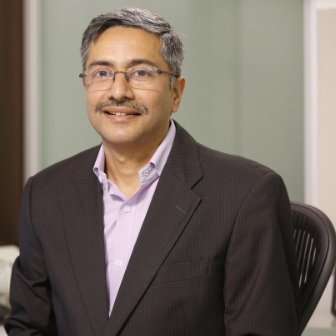A few years ago, I had written an article about six happiness hacks based on neuroscience. I wanted to stress test this theory in the light of the coronavirus pandemic, an event that has created enormous anxiety and uncertainty. The good news is that the hacks still work, and some of them are actually even more relevant now. I share my analysis below.
Gratitude & Generosity: If you are reading this, it is quite likely that you have only been inconvenienced by the pandemic (notional portfolio losses and toilet paper shortages notwithstanding), and are not on the front-lines saving lives while endangering yours, or directly affected by it with a life-threatening condition or the risk of personal bankruptcy. This is reason enough to be extremely grateful. It is also an opportunity to be generous, helping people in dire need with physical, financial and emotional support. At home, our daily dinnertime gratitude ritual continues, and we are looking at ways to give back more (increasing our philanthropic contributions as an example).
Health & Mindfulness: We should not require a pandemic to remind us to take care of our health. But if you have been remiss, this is a good time to get some exercise outdoors, eat a balanced diet, and sleep well. In addition, a daily dose of mindfulness (meditation or some focused activity) is a great antidote to the 24-hr negative news cycle. At home, we have diligently stuck to our fitness and mindfulness rhythm, and even the kids have started a daily meditation regimen (not wholly voluntarily I must admit). We have also started a practice of a Tech Shabbat during the weekends, a day of much needed digital detox.
Humor: It is easy to get sucked into a vortex of gloom in such times, so humor becomes all the more important to maintain our sanity (which we need even more than sanitizer). I realize there was never a better time to watch a Seinfeld rerun.
Purpose: A black swan event on a scale like this makes us question many fundamental assumptions, and forces us to ponder the meaning and purpose of our lives. I have been reflecting on my purpose (‘unlocking potential in others’), and assessing what I should be doing differently in the current context to stay true to it.
Relationships: A pandemic is a good reminder of the importance of family and friends, and offers a great opportunity to connect more deeply with the people who really matter. At home, we are rediscovering the joys of board games, and I have managed to reconnect (don’t worry, virtually, without flouting social distancing norms) with friends and relatives.
Experiences & Achievements: A pandemic introduces constraints on this factor, but there is still a lot that we can do. This is a good time to hone rusty skills or learn new ones (I am dusting off my flute), or engage in simple bonding experiences (we are trying to cook more as a family).
The next few months are going to be tough, as I expect things to get much worse before they get better. However, there is a silver lining – the prospect of a new normal that is better for work-life balance and the environment, as companies embrace remote working and virtual meetings, and individuals discover what really matters and reset their priorities.
I do not mean to trivialize the grave public health threat of the pandemic and its potentially catastrophic economic ramifications. But when life throws us lemons, let us try our best to make some lemonade. Stay safe.
(If you are interested, here’s the link to my original article – Hacking Happiness)

